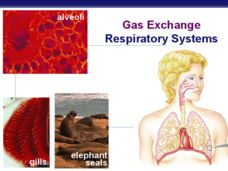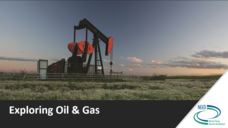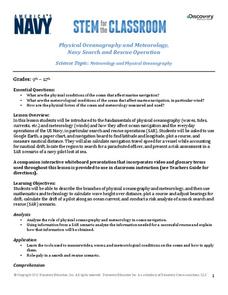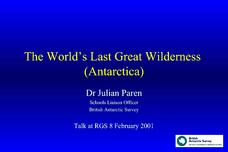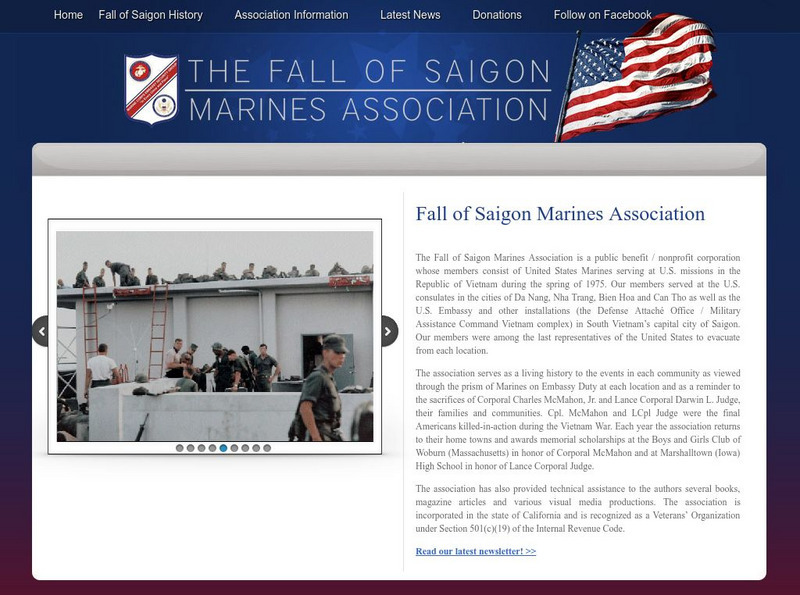Curated OER
Phase 5
A colorful presentation on common vowel blends awaits your class. Each of the 25 slides has a two-letter vowel blend in a large circle, accompanied by a smaller circle that has the phonetic sound that the blend makes. Pretty fish and...
Curated OER
Gas Exchange And Respiratory Systems.
Explore structures within the realm of gas exchange in terrestrial and aquatic life. The excellent, labelled diagrams and clear descriptions help your students view the different structures and adaptations that have developed. The 29...
Curated OER
America on the Home-Front during WWII
Here are 35 images ready to complement your next lecture on the Home-Front during WWII. While there isn't any text in this presentation, it won't matter. Each image is a great representation of what life was like for the people back...
Rainforest Alliance
Who Takes Care of the Maya Forest Corridor?
Who keeps animals safe? Who keeps us safe? Discover the helpers that make learning and growing possible through a medley of activities that focus on habitats—ours and those in the rainforest. Scholars are asked to identify one helper who...
Curated OER
Ocean Circulation
In this physical oceanography PowerPoint, viewers learn about ocean circulation, sea surface temperatures, and salinity. Relationships among these aspects are explained, as well as their impact on the atmosphere and climate. Each slide...
Curated OER
Gas exchange: Respiratory Systems
The need for a respiratory system in humans versus being reliant on gas exchange structures is demonstrated. There are many details about the advantages and disadvantages of each mechanism. Students are able to learn about the...
ARKive
Adaptation: Design a Species
Adapt is what an animal does to ensure it will survive in a specific environment; maybe it's more complicated than that. Your young animal experts can view this handy presentation to better understand animal adaptations and also complete...
National Energy Education Development Project
Exploring Oil and Gas
The United States consumes more oil than any other country, about 1.85 billion barrels (or 77 billion gallons) a day. Viewers learn about the history of fossil fuel exploration and how they are formed in an informative presentation. They...
Kenan Fellows
Use of Dichotomous Keys to Identify Stream Organisms
What kind of organisms are living in the stream? After an explanation on how to use a dichotomous key, groups of three to four use the keys to identify macroinvertebrates from a local freshwater stream. Using the the concept of Stream...
Discovery Education
Physical Oceanography and Meteorology, Navy Search and Rescue Operation
It's an ocean rescue mission! Groups must find a pilot downed off the coast of the Chesapeake Bay. Rescuers must determine the distance needed to travel as well as the heading to get to the pilot's last known position. Taking into...
Curated OER
Earth Materials Module
This slide show progresses through a comprehensive review of the grounding principles of earth science. Get down and dirty with the details of fossil fuels! Help your geologists to have a rock solid understanding of the rock cycle. The...
Rainforest Alliance
Knowing the Essential Elements of a Habitat
To gain insight into the many different types of habitats, individuals must first get to know their own. Here, scholars explore their school environment, draw a map, compare and contrast their surroundings to larger ones. They then write...
Mr. E. Science
Climate and Climate Change
What factors make up climate? How does longitude and latitude affect climate? What is causing Earth's climate to change? These questions are the topic of a presentation that explains characteristics of climate and climate change.
Biology Junction
Protists: The World of Protists
More than 200,000 species of protists exist, living on land and in water around the planet. Scholars view the diversity of protists in an interesting presentation. It divides protists into three groups: animal-like protists, plant-like...
Biology Junction
Mollusks
Mollusks created every shell on Earth. Young scientists learn more about the phyllum mollusca in an informative presentation. It covers their characteristics, body plans, and relationships in the ecosystem. Then, it details each class of...
Curated OER
The World's Last Great Wilderness (Antarctica)
It's a shame that there are no photographs in this presentation because the information is fascinating! Each identically fashioned slide contains bullet points of information about Antarctica that will enhance an earth science...
Curated OER
Charity throughout History
Ever stop to think about why charities exist and when they started? Take a second to look through history and discover that giving has been apart of human society since ancient Rome. Jump to the US to uncover facts about our first...
Curated OER
Rocking Rock Review
The three types of rocks are the focus of this earth science PowerPoint. Young scientists can review the composition of these types of rocks and see the ways they are formed. For example, sedimentary rocks are formed when tiny grains of...
Curated OER
Protists
With this collection of slides, future biologists get to view photographs of protozoans from different phyla. Interspersed with the photos are bullet-style notes listing characteristics of each group. Unfortunately, most of the pictures...
Kenan Fellows
Determining Stream Health by the Diversity and Types of Benthic Organisms
How diverse are the benthic organisms found in local streams? Using the information learned in previous lessons on identification of macroinvertebrates and on calculating stream index values, groups determine the health of local streams....
NOAA
Noaa: Arctic Marine Animals
This slide show contains pictures of invertebrate arctic animals filmed during a 2005 expedition. Each photograph has a short description of the animal. There are ten animals displayed.
Woods Hole Oceanographic Institution
Woods Hole Oceanography Institute: Adaptations to Light
View several pictures of ocean life through the eyes of scientists and staff at Woods Hole Oceanography Institute. This particular slideshow highlights how ocean creatures change their colors in order to either hide from or frighten...
Northwestern University
Northwestern University: Measuring Plate Motions [Pdf]
This slideshow gives an advanced-level explanation of how to calculate the distance that tectonic plates move by using Physics formulas and concepts. Includes a discussion of marine magnetic anomalies and how these impact plate movement....
Other
Fall of Saigon by u.s. Marines
Take a look at this firsthand account of the final days a U.S. Marine spent in Saigon, before it fell to North Vietnam in 1975.







